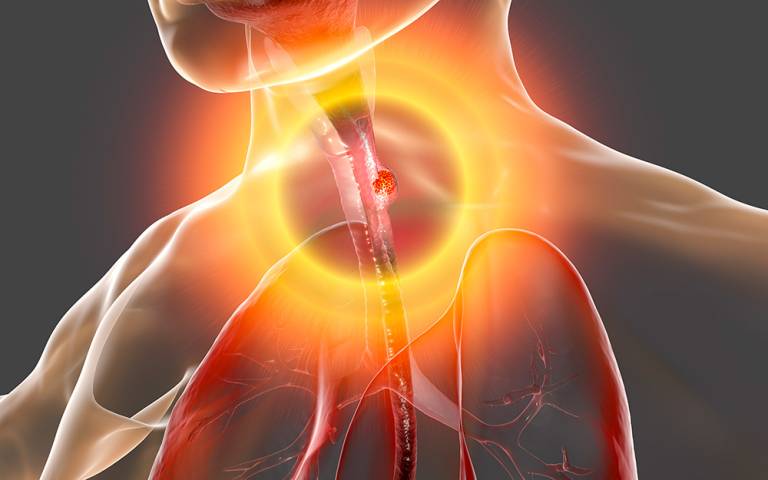World Cancer Day 2024 - CRUK Clinical trial awarded for PROTIEUS
2 February 2024

This World Cancer Day, we are showcasing a year of ground-breaking research conducted by the UCL Medical Physics and Biomedical Engineering community and sharing insights into our cutting-edge advancements as we work towards a cancer-free world.
Although the optimal treatment strategy in oesophageal (OEC) cancer has been the subject of research for several decades, overall outcomes are very poor, with a 5-year survival of 15%. In the UK there are 9272 new cases of oesophago-gastric cancer diagnosed every year and approximately 8043 deaths every year (Cancer Research UK (CRUK) statistic accessed June 2023). Oesophageal cancer is a strategic priority for CRUK and a serious health problem worldwide. Preoperative therapy consists of chemotherapy or chemoradiation, but the optimal regimen is unknown. The incidence of severe toxicity of the multimodality treatment is over 60% and impacts oncological outcomes. Protons are a means of reducing toxicity and need prospective investigation.
This study aims to investigate if moderately hypofractionated proton beam therapy (PBT) and chemotherapy (carboplatin-taxol) in the preoperative setting of OEC significantly reduces risk of severe lung, cardiac and blood toxicities and permits timely initiation of adjuvant immunotherapy when compared with standard radiotherapy delivered as part of triple modality therapy.
This is a phase II two-arm randomised controlled trial, where patients will be randomized 1:1 into the experimental arm (PBT 40.05Gy in 15 fractions + carboplatin/paclitaxel + surgery) and control arm (IMRT 40.05 Gy in 15 fractions + carboplatin/paclitaxel + surgery). Patients eligible for adjuvant immunotherapy will then receive a maximum of 12 months of treatment as per standard of care.
170 patients will be recruited over 2.5 years from 15 radiotherapy centres in the UK, and translational work to investigate potential biomarkers for radiation and immune response (blood, tissue and imaging).
The trial will be coordinated by CRUK and the UCL Cancer Trials Centre with additional funding from The Taylor Family Foundation to support the delivery of the trial.
This project involves collaboration from researchers and clinicians at the UCLH and Christie Hospital Proton Centre and 15 other UK NHS hospitals, UCL Cancer Institute, UCL Division of Biosciences, UCL Medical Physics and Biomedical Engineering, UCL Cancer Trials Centre, Cancer Research UK and the Universities of Southampton, Oxford and Cambridge.
Meet the Expert
Professor Maria Hawkins

With a long history of major breakthroughs, UCL is home to one of the largest concentrations of cancer specialists to be found anywhere in the world. On World Cancer Day 2024, find out more about UCL’s world-leading research on cancer at the UCL Cancer Institute
 Close
Close

